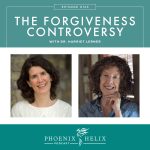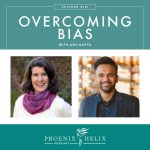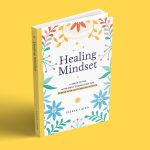
Don’t Say That!
Everything happens for a reason. What did you do to cause this? At least it’s not cancer. Oh, I heard about this cure online… Is this sounding familiar? An interesting part of the human experience is that when faced with someone’s pain, people are often at a loss about what to say and end up saying some really unhelpful and hurtful things. But occasionally, people say exactly the right thing. In this episode, we vent about some of the most outrageous things we’ve been told about our autoimmune diagnosis, and celebrate some of the most helpful.
Listen to the Show
- Subscribe to my podcast through your favorite podcast app: iTunes, Stitcher, Google, TuneIn, Spotify, Amazon, etc.
- You can also listen to the episode right here through the player below, and if you subscribe to my newsletter you’ll get notified of future episodes.
Podcast: Play in new window | Download
Show Notes
- Intro (0:00)
- Thank You to our Podcast Sponsor – Paleo on the Go (2:18)
- A frozen meal delivery service, 100% of their menu is compliant with the elimination phase of the paleo autoimmune protocol (AIP). They have over 5o items, including entrees, side dishes, broth, AIP-friendly bacon, and desserts.
- Use the code PHOENIX for 10% off your first order.
- Meet Our Guests (3:34)
- Christa Holmes has a type of scleroderma called Coup de Sabre which affects the face. At her worst, she was in near-constant, severe pain centered around her eye and forehead. Her energy was so low that showers were exhausting and she spent most of her time in bed. Her symptoms started in 2001. She didn’t receive a diagnosis until 2005, and the rheumatologist told her there was nothing he could do for her. In 2007, she began low-dose antibiotic therapy combined with acupuncture and acupressure. It was a slow process, but this combination slowly reduced her pain down to just a few days per month surrounding her menstrual cycle. She transitioned off the antibiotics in 2010 and maintained her improvements. Then in 2017 she found the AIP + Wahls Protocols with their focus on nutrient-density and also started working with a functional medicine practitioner to find some supplements that were helpful. Her pain is now very rare, and her energy levels much higher. She now eats organ meat for breakfast, and that had an immediate positive effect on her energy levels. As far as lifestyle changes, managing her energy by making sure she doesn’t overdo is essential.
- Stacey Venancio has celiac disease, Raynaud’s disease, and a one-time experience with alopecia. Her worst health was in her mid-twenties. She had multiple food sensitivities and was constantly experiencing brain fog, fatigue, and skin reactions. During one particularly stressful summer, her symptoms increased to include hair loss, depression, digestive and hormonal issues as well. She felt like a health train wreck. This was in the late 90’s and early 2000’s before the AIP community existed online. She did her own research, kept a food journal, and started identifying the foods that caused her reactions. Unknowingly, she put herself on a diet very similar to the paleo autoimmmune protocol. The difference was night and day. Now, she feels like a normal human. As long as she follows her personalized AIP diet (with reintros), and manages her stress and prioritizes sleep, she feels great. She also has to watch her histamine levels.
- The Worst Things People Say (14:50)
- We’re going to break this down into common categories of unhelpful responses to suffering. Keep in mind that this is very human to do. Most of us have said these things to others before we knew better. Stacey, Christa, and Eileen will take turns sharing their experiences across the categories.
- Religious Meaning (15:48)
- Everything happens for a reason. God (or the universe) has a plan.
- You may be thinking, ‘What’s wrong with that? That’s a beautiful idea that God is with you.’ The problem is that instead of being comforting, this phrase usually leaves people feeling very alone. It doesn’t allow for all of the feelings that come with a debilitating illness. It tries to bypass the emotions and physical suffering and go straight to the blessings.
- Eileen’s experience: People said this to me when I was first diagnosed and continue to say it to me now. Some people want me to say that rheumatoid arthritis is a 100% blessing in my life. The truth is, I can see the gifts that RA has given me: greater empathy and humanity, awareness of my own strength and resilience, connection to an amazing community of people, and fulfilling work that was born from this experience. But this wasn’t my experience when I was first diagnosed, nor is it the entirety of my experience. I have also experienced pain at a level for which there are no words. I’ve had permanent damage done to my body and needed shoulder replacement surgery. My life span is predicted to be 10 years shorter (although I’m doing my best to mitigate that). I would take a cure tomorrow, and I wouldn’t wish RA on anyone. Not only that, the people who want me to say it’s a 100% blessing wouldn’t wish RA for themselves either.
- Blame (19:03)
- What did you do to cause this? Here, autoimmune disease is seen as a curse rather than a blessing, and people want to know the reason for it (and therefore see how they’re protected.)
- Eileen’s experience: I was a massage therapist who lived a pretty healthy life. In my family, I was the health-conscious one. So people were shocked when I became ill, and it made them very nervous. With my massage clients, some put me on a pedestal and saw me as a healer in their life. Now the question arose: if I couldn’t heal myself, how could I help them? The ones who were the most frightened, cut me out of their life.
- Minimizing & Maximizing (21:06)
- These are opposites, and it’s common to experience both. Minimizing is when someone says, “At least it’s not….(insert worst case scenario).” The most common one is “At least it’s not cancer.” Maximizing is when someone shares the worst horror stories they’ve ever heard connected to your diagnosis.
- Christa has experienced both of these back-to-back. When she was first diagnosed with scleroderma, her rheumatologist immediately told her that she could expect to be disfigured and die within 5-10 years. Since that was 14 years ago, clearly he was wrong, but it was a terrifying moment. When she told a close friend about the experience, the friend responded by saying, “Well, at least it’s not cancer.” In spite of the fact that the doctor gave her a terminal diagnosis, her friend still tried to minimize it. Christa thinks part of the reason is that her symptoms weren’t strongly visible to her friends, so it was hard for them to accept what was going on.
- Minimizing & maximizing are also things we can do to ourselves. Google is often a gateway to worst-case-scenario stories, and denial (one manifestation of minimizing) is often part of the grief journey of autoimmune disease.
- Mis-Use of the Mind-Body Connection (27:07)
- This can manifest in a few different ways. One is telling you that your symptoms are imaginary – they’re all in your head. Another is when people tell you that autoimmunity is simply a sign of a spiritual or emotional block, and once fixed you’ll be cured. While the mind-body connection is real, it’s not a cure, and it harms people when someone exaggerates its power. (Resource: 3 Myths About the Mind-Body Connection.)
- Eileen’s experience: As a public figure, I’ve gotten multiple emails from people suggesting that my rheumatoid arthritis is caused by a spiritual or emotional block, and once released I will be cured. Not only that, but as a leader in the community I have been told I have a responsibility to cure myself.
- Stacey’s experience: It’s hard to be taken seriously when you appear healthy on the outside. Because her symptoms were largely invisible to others, many people told her it was all in her head, including multiple doctors. One prescribed her prozac. Another told her she needed to do emotional healing. And another told her she needed to stop focusing on her problems and just enjoy her life, as if that would make her problems go away. By contrast, she once had Bell’s Palsy which has clear, visible symptoms and a standard course of treatment. She said she had never been treated so well in a doctor’s office. They were empathetic, respectful and helpful.
- Thank You to our Podcast Sponsor: Wild Zora (34:03)
- Today, I’m highlighting their instant soups and camping meals. The instant soup comes in a compact, light, envelope that’s easy to carry with you. All you need to do is add hot water and you have a great snack, and Lemon Chicken is their AIP-friendly flavor. I’m now bringing these with me when I travel, because they would be perfect at the airport if I experience a delay. The camping meals are larger, but they still don’t weigh much since they’re dehydrated. They’re designed for backpackers who need a lot of calories after a day on the trail. If you have a gentler camping experience or want these for a road trip, I think they could easily serve two people. They have 2 AIP-friendly flavors: Summit Savory Chicken and Mountain Beef Stew.
- A paleo food company that specializes in dehydrated foods, including delicious meat & veggie bars, instant soups, camping meals, and cold-steeped instant teas. Their goal is to fuel people for health, travel, and time outdoors.
- Place an order here, and use the code PHOENIX1 for 15% off your first order.
- Comparison (36:01)
- This is where someone tells you their symptoms are the same as yours, so they totally understand. The problem is they usually have a very mild version of your symptoms, and don’t have any true understanding of how debilitating yours can be. While the desire might be to connect, it leaves people feeling disconnected and unseen.
- This often happens to people with Chronic Fatigue Syndrome, where people will say, “I’m tired all the time, too.” But those people may be working full-time, going out on the weekends, and exercising as well, while you are spending most of the day in bed.
- Eileen’s experience: Because many people have osteoarthritis, people commonly thought they understood my experience, thinking rheumatoid arthritis was similar, when it’s really not. I even had one woman say, “I wonder if I have rheumatoid arthritis and that’s why my hands hurt after bowling.” These types of comparisons filled me with grief, because I would have loved to have had the milder pain these people were sharing.
- That said, sometimes we meet people who do have symptoms that resemble our own, and in that case, those people are usually very frightened and wondering what’s wrong. It’s best to refer them to a doctor immediately to get tested, and offer support where we can.
- Disbelief (39:53)
- “But you don’t look sick!” This can be said in different tones of voice. Some people think they’re complimenting you. Others are suspicious that what you are feeling can’t be real if it doesn’t show on the surface. Both Christa and Stacey experienced this.
- Christa’s experience: Many people told her that she didn’t look sick and they couldn’t see anything wrong. She often found herself doing too much, not resting enough, trying to live up to the expectation of not being sick. She learned she needed to set boundaries and be honest with herself about when she had energy, and when she needed rest.
- Stacey’s experience: Because her symptoms seemed to come out of nowhere and had no known cause, she experienced a lot of disbelief. In fact, her family thought she had an eating disorder.
- Simple Solutions & Magical Cures (42:07)
- This comes in many forms, from telling someone they just need to drink more water, to sharing an anecdotal story of a “friend of a friend” who cured the same diagnosis with … (insert bizarre suggestion).
- Stacey experienced this in the doctor’s office as a side effect of their disbelief. They would frequently tell her she just needed to sleep more and manage her stress, and her problems would go away.
- Eileen’s experience: I have gotten many magical cure suggestions. The most memorable was the health blogger who told me kombucha caused my RA, and if I stopped drinking it, I would be cured. (In spite of the fact that I never drank kombucha before my diagnosis.) Another person told me that eating 9 gin-soaked raisins per day would eliminate arthritis pain and cure rheumatoid arthritis.
- Judging Your Treatment Choices (44:31)
- This is very common, no matter what you choose – conventional or alternative. People have opinions and like to share them. Here’s the deal, though: most people aren’t looking for opinions. They’ve already made the decision that feels best for them. If they want your opinion, they’ll ask.
- Christa’s experience: When she researched the antibiotic protocol for scleroderma, she approached her doctor with the details because she needed a prescription. Her doctor dismissed her research, telling her it was just a placebo, and refused to prescribe it. Christa was furious, because even if it was a placebo, what would be the harm in trying it?
- Eileen’s experience: People judged my decisions around medication – ironically in both directions. When I didn’t take medication for the first few years after diagnosis, managing my symptoms with diet and lifestyle instead, it made some people very nervous. Then, when it became clear that I needed medication to prevent damage to my body, that bothered a different group of people who wanted to see me as a role model for staying medication-free.
- Comments on Weight (49:10)
- This can go both ways. One example is “This is the thinnest you’ve ever been! I wish I had your disease. You look great!” My friends who were told this had autoimmune diseases that interfered with their ability to absorb nutrition, which is why they were so thin.
- Another example is “If you just lost the weight, you would feel better. That’s the only thing wrong with you.” So often, people see weight as the cause instead of a symptom of illness. One example is Marie’s Healing Story.
- The Worst Things We’ve Said to Others (49:57)
- As I said in the introduction, this is very human – saying the wrong the thing. And I don’t want to give the impression that we’ve never done this ourselves. I think we’re much less likely to do it now that we have suffered and have been on the receiving end of these statements. But it’s still possible.
- Eileen: Long before getting RA, a friend developed autoimmune disease, and she was an empath. I remember thinking – this happened because she has no boundaries. As if autoimmune disease was a dysfunctional lover that she let in. I never told my friend that, but I’m ashamed to say that’s how my mind worked. I wanted to find the reason for her illness. I did the same thing when another friend got cancer. At dinner with mutual friends (where the friend with cancer wasn’t present), we all tried to figure out the cause and finally decided it was likely her Type A personality. This seems so ridiculous to me now, and I’m grateful I never said those things aloud. However, I was definitely a fix-it person. I don’t remember specific examples but I’m sure I gave some unsolicited advice, probably some simple solutions. And I also tried to cheer people up by telling them how strong they were, rather than letting them feel weak in my presence (which would have been the greater gift.)
- Christa: She remembers shortly after developing her symptoms of pain and exhaustion, she went grocery shopping and got behind a woman who was extremely slow and indecisive. In the past, she would have felt incredibly frustrated and judgmental of that woman. This time, she felt a deep compassion and empathy she had never experienced before. She was acutely aware that this woman might be suffering too, which was contributing to her slow and indecisive behavior. It was a clear before & after moment – seeing the world through different eyes.
- Stacey: She admits that she finds herself judging people’s grocery store carts, if they look unhealthy and they have a cart filled with unhealthy foods. The same goes for people in her personal life who have health problems but aren’t willing to change their diet or lifestyle. It’s hard for her to accept people’s unhealthy choices, but she’s working on it! She is trying to develop more empathy and understanding that they’re just not ready. This is so honest and a common struggle in the AIP community. All we can do is focus on our own journey, and respect that there are a lot of factors that influence a person’s willingness to change. We don’t have the power to make other people change.
- Why People Say the Wrong Things (56:41)
- Most people aren’t trying to be cruel.
- Platitudes: People reach for platitudes when they don’t know what to say.
- Fear: Serious illness is scary, and no one wants to face the truth that it can happen to anyone. Instead, we desperately look for a reason.
- Discomfort with Suffering: It’s very hard to sit with someone who is suffering, without trying to fix it or explain it away.
- Missed Attempt at Connection: People want to relate to you, but when they have no real frame of reference they often reach for comparisons or stories that leave you feeling alone instead.
- Desire to Help: Unfortunately, words are rarely helpful. The most helpful thing we can do is listen and simply be with someone.
- Physician Burnout: With the current medical system, doctors are given very little time with patients and have major gaps in their training. They might see up to 20 people a day who have a serious medical condition. It’s not uncommon for doctors to stop allowing themselves to feel compassion, because it hurts too much. This is behind some of the cold-hearted responses shared in today’s episode. Resource Podcast: Ep. 67: Building Effective Doctor-Patient Relationships.
- The Best Things People Have Said To Us (1:00:28)
- Christa: While her first experiences with doctors were so negative they were traumatic, she eventually found a doctor who was wonderful. At her first appointment, Dr. Franco sat down with her and asked her to share her story. He listened without interruption as she cried and shared her prior medical experiences. When she was finished, he asked questions showing he had been listening closely. And then he apologized on behalf of the other doctors, saying he was so sorry she had that experience. It was incredibly healing to her, like a weight had been lifted.
- Stacey: Her best support has come from the online AIP community, through Instagram, Facebook, and interactions through her YouTube channel. Her boyfriend is also supportive. He calls her diet “special unicorn food” which he happily eats with her.
- Eileen: While sometimes people said the right thing, I think that’s actually a matter of luck rather than skill a lot of the time. The most supported I have felt have been the times when people have simply listened to me, shown their love, and accepted wherever I was at in the moment. One example is when my rheumatoid arthritis symptoms were at their worst back in 2012, I was in so much pain that hugs hurt, and I cried every day. I remember my husband taking me very gently into his arms and kissing my tears away.
- Resources (1:07:30)
- Book: Everything Happens for a Reason and Other Lies I’ve Loved by Kate Bowler
- Podcast: Everything Happens
- Funny Video: Stupid things people say to someone with an autoimmune disease
- Empathy Cards: By Emily McDowell
- Quote by Parker Palmer: “The human soul doesn’t want to be advised or fixed or saved. It simply wants to be witnessed — to be seen, heard and companioned exactly as it is.”
- Outro (1:09:05)
- Christa Holmes is a professional photographer, and you can reach her through her website: Christa Mae Imagery. Stacey Venancio is the vlogger behind the YouTube channel: Real World AIP, and she’s also a Certified AIP Health Coach. You can reach her through her website.
- Eileen (your podcast host) is the author of multiple books, written to help people thrive with autoimmune disease. Learn more on the Books Page.
- If you like this podcast, follow or subscribe through your favorite podcast app. You can also subscribe to Eileen’s biweekly newsletter.
- Check out the entire archive of podcast episodes.
You May Also Be Interested In
Spreading the Word
If you like the podcast, please leave a positive review in iTunes. It would mean the world to me, and also helps others find the podcast. Here are some quick instructions using your iPhone:
- If you are already subscribed to my podcast: (1) Click the purple podcast icon. (2) At the bottom of the screen, click Library. (3) At the top of the screen, click Shows. (4) Click the Phoenix Helix podcast image. (5) Scroll down the page, and you’ll see Ratings and Reviews. Scroll down a little bit more and click on Write a Review. This will bring up the review screen. Tap 5 stars (if you love the podcast), and then click in the title box, and it will bring up the keyboard. Enter a title and short review. (6) Click Send in the upper right corner. (7) Thank you! Positive reviews give the podcast a higher search ranking in iTunes, helping people find it and letting them know it’s a quality podcast and worth their time to listen.
- If you haven’t subscribed to my podcast: (1) Click the purple podcast icon. (2) In the lower right corner, click the magnifying class. (3) Type Phoenix Helix in the search box. (4) Click the podcast cover in the Show list. (5) If you’d like to subscribe, click the + sign at the top of the screen. (6) To write a review, scroll down the page, and you’ll see Ratings and Reviews. Scroll down a little bit more and click on Write a Review. This will bring up the review screen. Tap 5 stars (if you love the podcast), and then click in the title box, and it will bring up the keyboard. Enter a title and short review. (7) Click Send in the upper right corner. (8) Thank you! Positive reviews give the podcast a higher search ranking in iTunes, helping people find it and letting them know it’s a quality podcast and worth their time to listen.








Thank you for sharing ladies. It helps to know we’re not alone out there.
Hi Cheryl. You are definitely not alone!